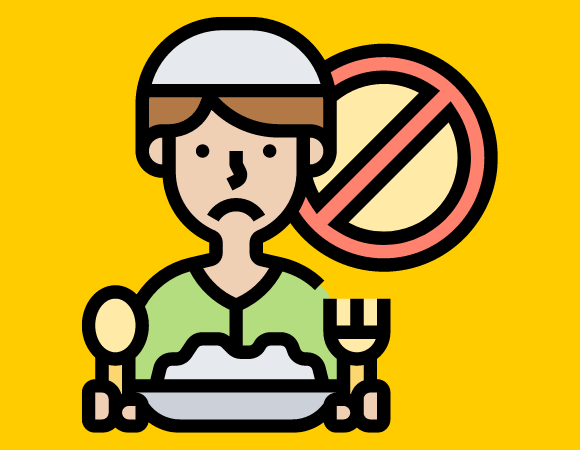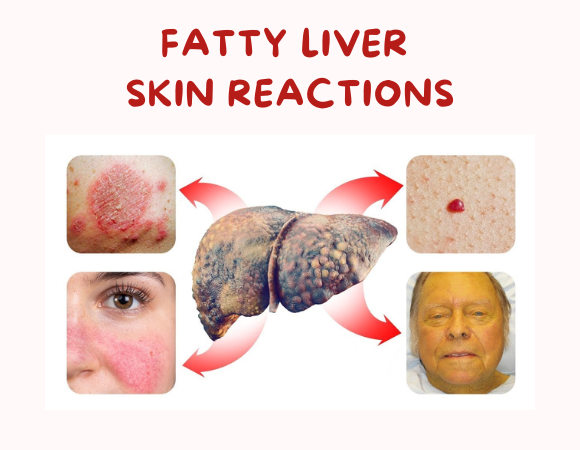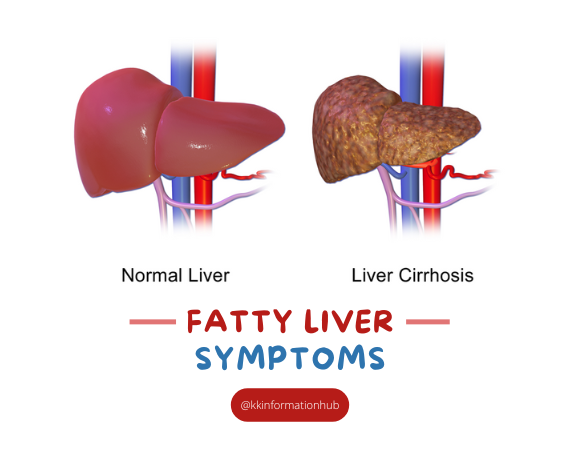What Is Fatty Liver?
Fatty liver is a condition where there is an abnormal accumulation of fat within the liver cells, which can lead to liver damage and inflammation. It is usually caused by excessive alcohol consumption or an unhealthy diet, but can also be associated with obesity, insulin resistance, and other metabolic disorders. If left untreated, it can progress to liver scarring and cirrhosis, which can lead to liver failure.
Signs Of Fatty Liver
Fatty liver is often asymptomatic, meaning it can have no noticeable symptoms. However, most people with fatty liver have the mentioned signs:
- Fatigue
- The upper right abdominal area is affected by Pain or discomfort
- Weakness
- Weight loss
- Nausea
- Confusion
Yellowing of the skin and eyes (jaundice)
It's important to note that these symptoms can also be indicative of other health problems, so a proper medical evaluation is necessary for a definitive diagnosis.
Foods To Avoid With Fatty Liver
People with fatty liver are often advised to avoid certain foods that can contribute to further liver damage or make existing liver problems worse. Some of the foods that should be limited or avoided include:
- High-fat foods, such as fatty cuts of meat, butter, cheese, and fried foods
- High-sugar foods and drinks, such as candy, desserts, sugary drinks, and fruit juices
- Must avoid eating processed foods such as snacks and convenience meals
- white bread and pasta
- Excessive amounts of alcohol, as can further damage the liver
It's also important to eat a balanced diet that includes plenty of fruits and vegetables, whole grains, and lean protein sources. If you have fatty liver, your doctor may also recommend specific dietary changes to help manage your condition.
 |
| Stop Eating Processed Food With Fatty Liver |
Treat Fatty Liver With Food
Treating fatty liver with food involves making dietary changes to support liver health and improve overall health. Some key dietary recommendations for people with fatty liver include:
- Eating a healthy, balanced diet that is low in fat, sugar, and calories
- Incorporating more fiber-rich foods, such as whole grains, fruits, and vegetables, into your diet
- Choosing lean protein sources, such as poultry, fish, and legumes
- Limiting or avoiding high-fat, high-sugar, and processed foods
- Drinking plenty of water to help flush out toxins from the liver
- Avoiding excessive alcohol consumption, as alcohol can further damage the liver
It's also important to maintain a healthy weight and avoid rapid weight loss, as this can put additional stress on the liver. If you have fatty liver, it's best to work with a healthcare provider to develop an individualized treatment plan that takes into account your specific health needs and goals.
.jpg) |
| Fruits & Vegetables are best to treat Fatty liver |
Can We Eat Rice With Fatty Liver?
Yes, you can eat rice if you have fatty liver, but it's important to keep in mind that a healthy diet is an important factor in managing fatty liver. It's recommended to limit your intake of added sugars, unhealthy fats, and processed foods, and to eat a variety of nutrient-dense foods such as vegetables, fruits, whole grains, and lean protein. Talking to a healthcare provider or a registered dietitian can provide personalized recommendations based on your individual needs and health status
Fatty Liver Treatment With Home Remedy
While there is no cure for fatty liver disease, making lifestyle changes, including diet and exercise, can help manage the condition and reduce the risk of liver damage. below mentioned home remedies may help to treat fatty liver:
Maintain a healthy weight through diet and exercise: Eating a balanced diet low in fat, sugar, and calories, and engaging in regular physical activity can help reduce the amount of fat in the liver and support overall health.
Limit alcohol intake: Excessive alcohol consumption can worsen fatty liver, so it's important to limit or avoid alcohol.
Drink plenty of water: Staying hydrated can help flush out toxins from the liver and support liver function.
Herbs and supplements: Some herbs and supplements, such as milk thistle and vitamin E, are thought to have liver-protective effects, but more research is needed to confirm their effectiveness. before taking any supplements, It's important to talk to your doctor, as they can interact with other medications you may be taking.
Avoid fasting or extreme calorie restriction: Rapid weight loss can put additional stress on the liver, so it's important to avoid fasting or extreme calorie restriction.
It's important to keep in mind that home remedies should not be used as a substitute for medical treatment. If you have fatty liver, it's best to work with a healthcare provider to develop a comprehensive treatment plan that addresses your individual health needs and goals.
Fatty Liver Impacts On Skin
Fatty liver disease can impact the skin in several ways:
Pruritus: Fatty liver disease can cause itching, also known as pruritus, due to the accumulation of waste products in the bloodstream.
Xanthelasma: Yellow deposits of fat under the skin around the eyes, called xanthelasma, can be a sign of fatty liver disease and high cholesterol levels.
Acanthosis Nigricans: This is a skin condition characterized by thick, dark, velvety patches on the neck, armpits, and other body folds. It is often associated with insulin resistance and obesity, which are also risk factors for fatty liver disease.
Bruising: Fatty liver disease can impair liver function, including the production of blood-clotting factors, which can lead to increased bruising.
 |
| Fatty Liver symptoms can also be indicative of other health problems |
Skin rashes: Skin rashes are not a common symptom of fatty liver disease, but they can occur in some cases as a result of liver problems or as a side effect of certain medications used to treat liver disease. If you have a skin rash and suspect that it may be related to your liver, it is important to see a doctor for proper evaluation and diagnosis. They can rule out other possible causes of the rash and provide appropriate treatment based on the underlying cause.
It is important to keep in mind that skin changes can be a sign of other health conditions as well, and a healthcare provider should be consulted for a proper diagnosis and treatment plan. Maintaining a healthy lifestyle and managing underlying health conditions can help to reduce the impact of fatty liver on the skin and overall health.
Conclusion
Fatty liver is a condition in which there is an accumulation of excess fat in the liver cells, leading to liver dysfunction. There are two main types of fatty liver: alcoholic fatty liver disease, which occurs due to excessive alcohol consumption, and non-alcoholic fatty liver disease (NAFLD), which can occur in people who drink little to no alcohol.
The risk factors for fatty liver include obesity, high cholesterol, high triglycerides, insulin resistance, and type 2 diabetes. Symptoms of the fatty liver may not be present, but when they do occur, they can include fatigue, weakness, abdominal pain, and unexplained weight loss.
In the early stages, fatty liver can often be managed through lifestyle changes such as weight loss, exercise, and a healthy diet. However, if left unchecked, it can progress to more serious conditions such as cirrhosis and liver failure.
It is important to talk to a healthcare provider for a proper diagnosis and to develop a personalized treatment plan. Early detection and management of fatty liver can prevent its progression and help to protect liver health.






0 Comments
Please do not enter any spam link in the comment box.